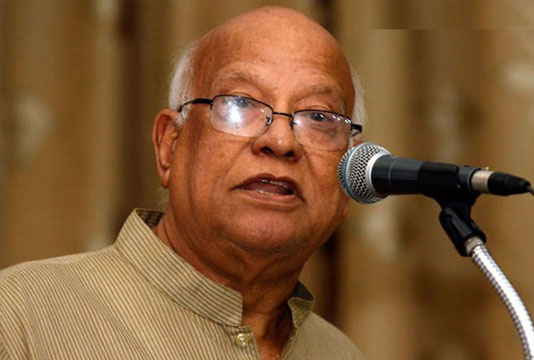DHAKA, July 8, 2018 (BSS) – Finance Minister AMA Muhith today said Asian
Development Bank (ADB) has assured that the bank would take steps to
accelerate its fund disbursement this year for timely implementation of the
ADB-funded projects in Bangladesh.
“You know ADB’s fund disbursement process has become very strong. The ADB
hopes that its fund disbursement would be stronger from this year. It
disbursed around US$ 1.2 billion last year. The bank is likely to disburse
about US$ 2 billion in this fiscal,” he told reporters after a meeting with
ADB Country Director for Bangladesh Manmohan Parkash at his secretariat
office here.
ADB Board of Directors recently approved a grant of US$ 100 million –
the first of an envisaged package totaling US$ 200 million – to help
Bangladesh develop basic infrastructure and services for displaced Rohingyas.
Muhith said the ADB is providing the supports from their own resources as
it has no option to give big grant.
He expected that the support would help create pressure on Myanmar for
taking back their people from Bangladesh.
Talking to reporters, Manmohan Parkash said ADB’s project in this first
phase will focus on basic infrastructure and services, including water supply
and sanitation, disaster risk management, energy and roads.
In early May, he said, the Bangladesh government sought grant assistance
from ADB and the development partner made a quick response and processed the
project at an extraordinary speed within two months.
Since late August 2017, about 700,000 people crossed the border from
Rakhine State, Myanmar, into Cox’s Bazar.
This has caused a huge strain on the local infrastructure, economy as
well as a major humanitarian concern. The displaced people are living in 32
camps spread over the district.
The ADB project will rehabilitate roads within the camps to connect
essential food distribution and storage centres, hospitals, education
facilities and provide emergency services.
The project will be implemented in coordination with the United Nations
agencies, the World Bank and other donors that are giving humanitarian
assistance and relief like food, water, medical aid and temporary shelter.



